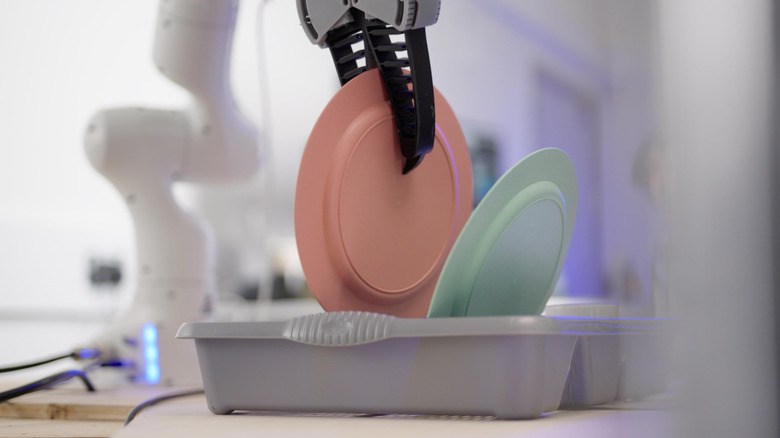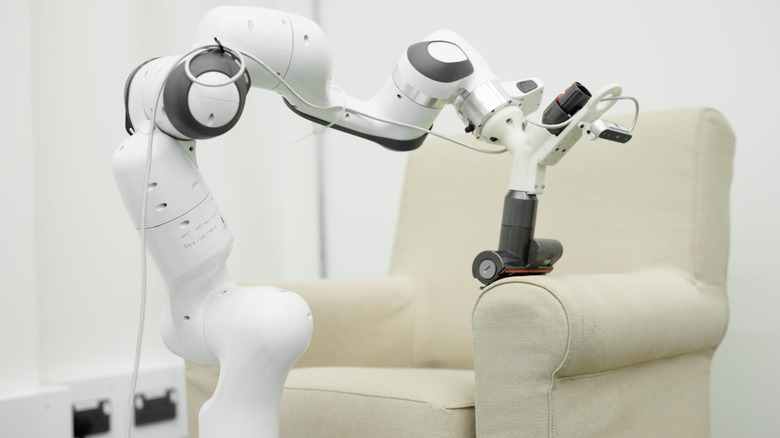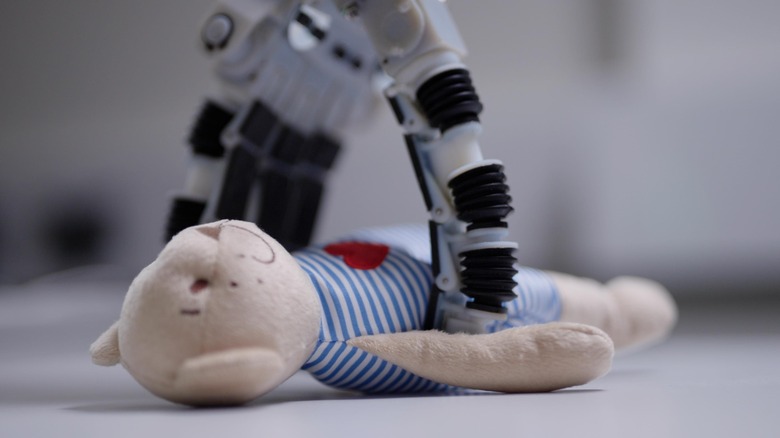Dyson Is Testing Out Robots To Do Your House Chores For You
The future of human rapport with robots is as glum or bright as you imagine it. While there have been countless debates about robots replacing humans in mundane jobs, famous home appliance company Dyson shared its vision for a future of human-robot harmony where robots will take over routine chores around our homes. At the International Conference on Robotics and Automation (ICRA), Dyson gave us a glimpse of the roles that robots will assume in our homes over the coming years and decades — and it will much more than menial jobs such as cleaning.
Dyson says it is leading research initiatives that will help the company train robots that can hold and pickup up objects just like human hands. Along with this ability to grip, the company is also working on robots that have visual perception and can use artificial intelligence to manipulate their surroundings or act on the owners' commands.
A substantial workforce to innovate in robotics
To realize its vision, Dyson plans to create the UK's biggest and the most sophisticated robotics center at the Hullavington Airfield in Wiltshire, while also using its existing research labs in the UK and Singapore. For this expansion, the company says it aims to recruit 250 robotics experts across different areas of expertise, ranging from machine learning to mechatronics and computer vision.
Dyson plans to invest 2.75 billion pounds sterling (~$3.45 billion) to expand its products and innovate new technologies. Out of this budget, the company plans to spend 600 million pounds sterling (~$750 million) in 2022 alone. The R&D endeavors at the new robotics center will be led by Jake Dyson, the chief engineer at the company. "This is a 'big bet' on future robotic technology that will drive research across the whole of Dyson, in areas including mechanical engineering, vision systems, machine learning and energy storage," Dyson said in a statement.
Dyson's big ambitions haven't always paid off
It's not the company's first foray into home robotics, mind, or indeed moonshot projects. Dyson already has two generations of robot vacuum — most recently 2018's Dyson 360 Heurist — under its belt, promising advanced functionality in return for premium price tags. Although the second-generation model skipped a US launch, FCC filings in late 2021 suggested a third-generation robot could be headed to dusty American floors at some point.
At the same time, not everything the company attempts is a success, or indeed even manages to reach the market. Dyson scrapped plans (and not-inconsiderable investment) for an electric car in 2019, blaming cost and the hugely competitive nature of the auto industry for the decision.
Whether advanced robots will be accepted and embraced in our homes anytime soon, meanwhile, is a matter of another debate. Nonetheless, Dyson's efforts will undoubtedly inspire pioneers around the world to help reimagine the role of robots in our lives.


